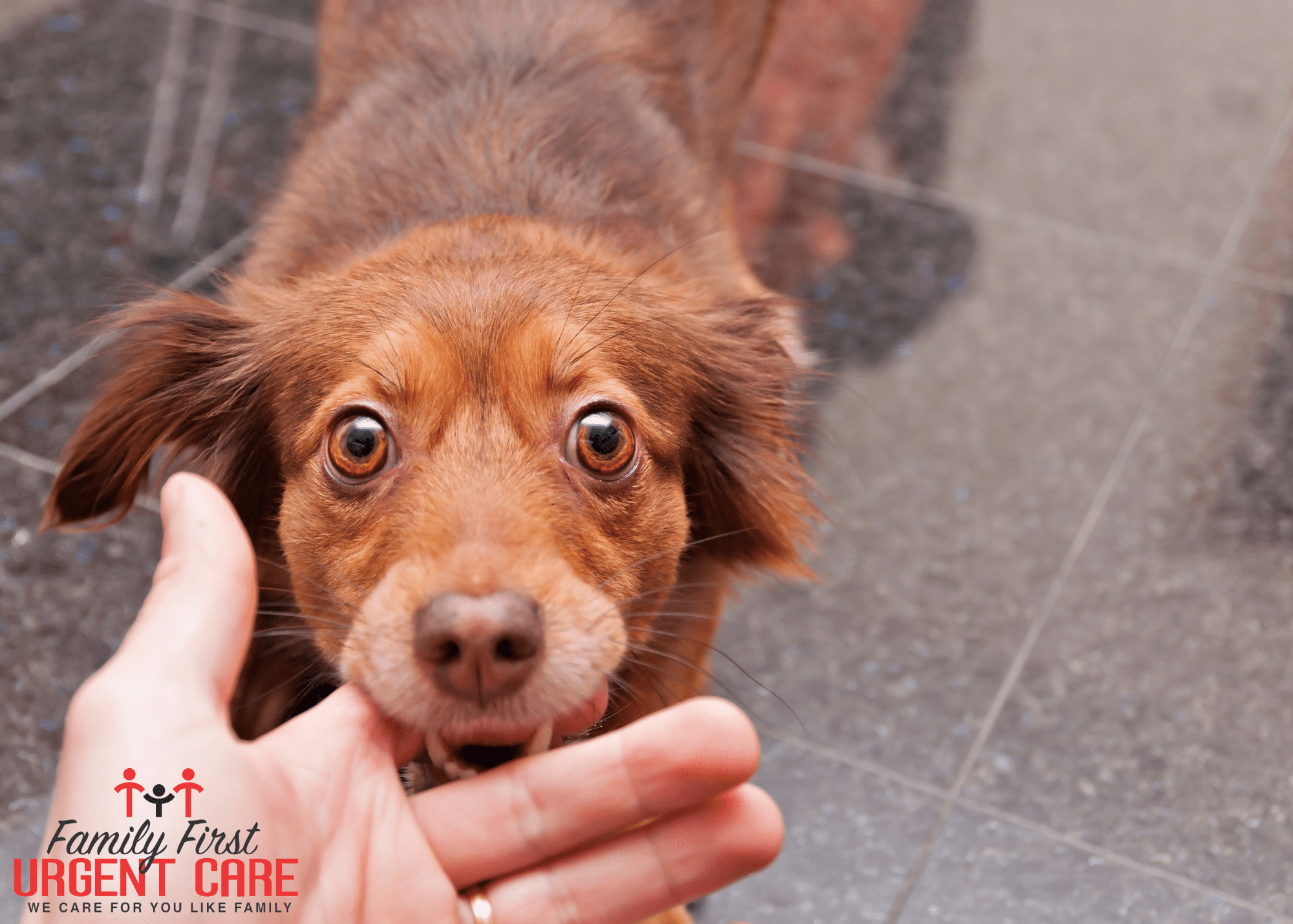 Pets bring joy, companionship, and unconditional love into our lives, but sometimes interactions with our furry (or not-so-furry) friends can lead to unexpected injuries. Whether it’s a playful scratch, an accidental bite, or an allergic reaction, pet-related injuries can occur even in the most loving households. Thankfully, urgent care clinics are equipped to handle these situations, providing prompt treatment to ensure your health and well-being.
Pets bring joy, companionship, and unconditional love into our lives, but sometimes interactions with our furry (or not-so-furry) friends can lead to unexpected injuries. Whether it’s a playful scratch, an accidental bite, or an allergic reaction, pet-related injuries can occur even in the most loving households. Thankfully, urgent care clinics are equipped to handle these situations, providing prompt treatment to ensure your health and well-being.
If you’re wondering what to do when pet-related injuries occur and how urgent care can help, this guide is here to provide answers.
Common Pet-Related Injuries
Pet-related injuries can vary in severity, but here are the most common ones people experience:
1. Bites
Animal bites can happen during play or as a defensive reaction. While mild bites may not appear serious, they can introduce bacteria that lead to infections like cellulitis or, in rare cases, more severe conditions like rabies.
2. Scratches
Pets, especially cats, can unintentionally scratch during play. Scratches that break the skin can become infected or result in a condition called cat scratch fever, caused by bacteria known as Bartonella henselae.
3. Allergic Reactions
Pet dander, saliva, and urine are common allergens that can trigger reactions ranging from mild sneezing to more severe symptoms like hives, difficulty breathing, or even anaphylaxis.
4. Zoonotic Diseases
These are illnesses transmitted from animals to humans, such as ringworm or leptospirosis. While not always immediately visible, they can cause serious health concerns if untreated.
5. Secondary Injuries
Interactions with pets can sometimes lead to accidents, like tripping over a leash, falling during play, or spraining an ankle while chasing after an energetic pup.
How Urgent Care Clinics Can Help
Urgent care facilities are an excellent resource for non-life-threatening pet-related injuries. They provide immediate treatment, reducing the risk of complications and helping you get back to feeling better as soon as possible. Here’s how urgent care can assist:
1. Cleaning and Treating Wounds
For bites or scratches, urgent care providers will clean and disinfect the site to prevent infections. They may also apply bandages and recommend tetanus shots if necessary.
2. Antibiotic Treatments
If there’s a risk of infection, a doctor can prescribe an antibiotic to ensure the wound heals properly.
3. Managing Allergic Reactions
If you experience an allergic reaction to a pet, urgent care can administer antihistamines, steroids, or other treatments to relieve symptoms and prevent escalation.
4. Vaccination Guidance
Urgent care clinics will evaluate the risk of rabies or other diseases and provide guidance on necessary vaccinations or follow-up care. For serious issues, they may refer you to a specialist or hospital.
5. Pain and Swelling Relief
For secondary injuries like sprained ankles or bruises, urgent care facilities can provide stabilization, pain management, and instructions for proper at-home care.
Why Prompt Medical Attention Matters
Time is of the essence when dealing with pet-related injuries. Minor issues can quickly escalate into serious infections or complications if left untreated. For example, bacteria from a bite can enter deep tissue layers within hours, increasing the risk of cellulitis. Similarly, untreated allergic reactions can pose serious risks to respiratory health.
Seeking immediate care ensures you receive proper treatment, reducing recovery time and preventing long-term damage.
Tips for Preventing Pet-Related Injuries
The best way to manage pet-related injuries is to avoid them altogether. Here are some practical tips for maintaining safety around your pets:
1. Learn Behavioral Cues
Understanding when a pet is stressed, anxious, or scared is key to avoiding aggressive reactions. Watch for signs like flattened ears, growling, or a tucked tail.
2. Train and Socialize Your Pet
Positive reinforcement training helps pets develop good behavior, and socialization exposes them to different environments, reducing fear-based reactions.
3. Supervise Interactions
Always monitor interactions between pets and children, as kids may not recognize boundaries that animals need.
4. Use Proper Restraints
Leash your dog in public spaces, and ensure cats or other animals cannot scratch or bite during grooming or vet visits.
5. Keep Vaccinations Updated
Ensure your pet’s vaccinations are current to minimize the risk of zoonotic diseases like rabies.
6. Practice Hygiene
Wash your hands after handling pets, especially if you’ve been cleaning up after them or before meals.
For more tips on pet safety and injury prevention, check out information from the Centers for Disease Control and Prevention (CDC).
Family First Urgent Care Is Here to Help
Dealing with a pet-related injury? Family First Urgent Care has a team of dedicated healthcare providers who are ready to assist. Whether you need quick treatment for a bite, relief from an allergic reaction, or care for a sprained ankle caused by a playful pup, we’ve got you covered.
Schedule Your Visit Today
To learn more about Family First Urgent Care or to schedule an appointment, visit www.familyfirsturgentcareconroe.com or call (936) 235-2825. Our experienced medical professionals are here to help you feel better, faster.
Pets are an important part of our lives, but staying safe and prepared can make your time with them even more enjoyable. When accidents happen, trust Family First Urgent Care to provide the care you need.
- Travel Health: Preparing for Your Trip with Urgent Care - December 18, 2024
- Pet-Related Injuries: How Urgent Care Can Help - December 4, 2024
- Urgent Care Myths Debunked: What You Really Need to Know - November 21, 2024



